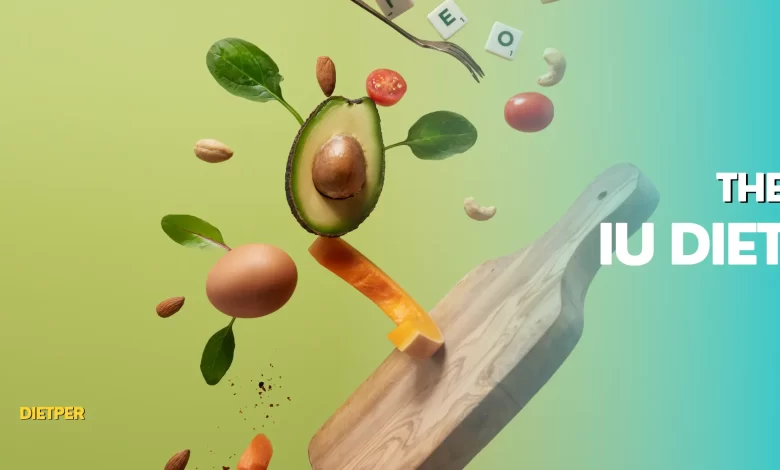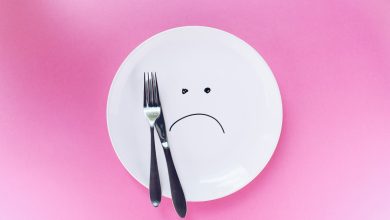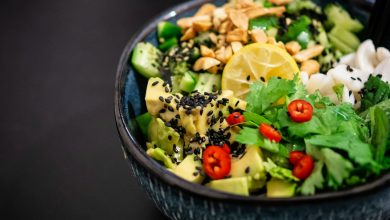The IU Diet Exposed: What You Need to Know About This Extreme Regimen
Unveiling the IU Diet: A Deep Dive into Extreme Weight Loss

The IU Diet :- Inspired by K-pop star IU, the IU diet has gained significant attention for its extreme weight loss approach. This article delves into the details of the IU diet, exploring its effectiveness, potential risks, meal plans, benefits, and side effects.
What is the iu diet?
The IU diet plan, inspired by South Korean singer and actress IU, is a weight loss regimen characterized by extreme calorie restriction. It typically involves consuming a meager amount of calories, ranging from 300 to 500 per day, for short periods, usually spanning several days. The diet emphasizes portion control, food choices, and meal timing rather than strict calorie counting.
While the IU diet may lead to rapid weight loss, it poses significant health risks due to its extreme calorie restriction, potential nutrient deficiencies, and unsustainable nature. The diet involves eating specific foods like fruits, vegetables, lean proteins, sweet potatoes, and protein shakes at different daily meals. Despite its association with rapid weight loss, the IU diet is not scientifically proven to be effective or safe in the long term, and it may lead to adverse health effects due to its extreme restrictions.
iu diet plan before and after
Before following this diet, IU emphasized portion control, food choices, and meal timing rather than strict calorie counting. However, IU herself admitted that her earlier diet was too extreme and that she had quit the routine, discouraging others from attempting to copy her.
Despite the diet’s association with rapid weight loss, it poses significant health risks due to its extreme nature and potential nutrient deficiencies. IU’s dedication to maintaining a healthy lifestyle through balanced nutrition and regular physical activity is a more sustainable approach to health and well-being.
The IU diet meal plan
The IU diet meal plan is a weight loss regimen characterized by extreme calorie restriction, typically consuming as few as 300-500 daily calories over short periods. While there isn’t a strict set of guidelines for the IU Diet, it generally emphasizes portion control, food choices, and meal timing rather than strict calorie counting. Here is a breakdown of a sample 7-day IU diet meal plan based on the information provided in the search results:
Day 1:
Breakfast: Start with a banana and a glass of water.
Lunch: Mixed salad with greens, cherry tomatoes, cucumber, and vinaigrette dressing.
Dinner: Grilled chicken breast with steamed vegetables like broccoli and carrots.
Day 2:
Breakfast: Boiled egg and a glass of water.
Lunch: Soup with broth, carrots, celery, and onions.
Dinner: Baked fish with sautéed spinach.
Day 3:
Breakfast: Small apple and a glass of water.
Lunch: Turkey and lettuce wrap with mustard.
Dinner: Vegetable stir-fry with tofu.
Day 4:
Breakfast: Small serving of oatmeal with cinnamon.
Lunch: Greek yogurt with sliced strawberries.
Dinner: Spaghetti squash with marinara sauce and Parmesan cheese.
Day 5:
For breakfast, slice whole wheat toast with peanut butter and water.
Lunch: Salad with mixed greens, bell peppers, and grilled shrimp.
Dinner: Vegetable omelet with egg whites and assorted veggies.
This meal plan reflects the general structure of the IU diet, focusing on low-calorie, nutrient-dense foods like fruits, vegetables, lean proteins, and minimal fats or carbohydrates. It is important to note that healthcare professionals do not recommend the IU diet due to its extreme nature and potential health risks, including gallstones, hair loss, and irregular heartbeats. Prioritizing balanced, sustainable eating patterns that provide adequate nutrition is essential for long-term health and weight management.
Benefits of the iu diet
The benefits of the IU diet, named after K-pop star IU, include aspects like portion control and flexibility in food choices. Here are the key benefits outlined in the search results:
Portion Control: The IU diet plan emphasizes teaching individuals to be more mindful of their portion sizes, aiding in developing a healthier relationship with food. By learning to eat smaller portions, individuals can better regulate their calorie intake, which is crucial for weight management and overall health.
Flexibility: Unlike many fad diets that impose rigid rules and restrictions, the IU Diet offers flexibility in food choices. This flexibility allows individuals to enjoy a wide variety of foods while still adhering to the basic principles of the diet. It promotes a balanced approach to eating, making it more sustainable in the long run.
These benefits highlight the IU diet’s focus on promoting healthier eating habits through portion control and a more flexible approach to food choices, which can contribute to weight management and overall well-being.
Side effects of iu diet
The IU diet, popularized by K-pop star IU, is associated with several side effects due to its extreme nature and restrictive eating patterns. Here are the key side effects outlined in the search results:

Deficiency in the Immunological System: The extreme calorie restriction of the IU diet can lead to deficiencies in essential nutrients like carbohydrates and proteins, which are crucial for a healthy immune system
Fatigue: Following the IU diet can result in increased fatigue due to insufficient energy and nutrients from the limited food intake. This can impact overall energy levels and daily functioning.
Muscle Aches and Pains: Individuals on the IU diet may experience muscle aches and pains, possibly due to inadequate protein intake and overall nutrient deficiencies. Proper nutrition is essential for muscle health and recovery.
These side effects highlight the potential risks associated with the IU diet, including nutrient deficiencies, fatigue, and muscle discomfort.
Side effects of extreme pop diets and its diet
Extreme K-pop diets, including the IU diet popularized by K-pop star IU, are associated with various side effects due to their extreme nature and restrictive eating patterns. Here are the key side effects outlined in the search results:
Deficiency in the Immunological System: Extreme calorie restriction in diets like the IU diet can lead to deficiencies in essential nutrients, impacting the immune system’s function
Fatigue: Following extreme K-pop diets can result in increased fatigue due to inadequate energy and nutrient intake, affecting overall energy levels and daily functioning
Hair Loss: Severe calorie restriction and nutrient deficiencies from extreme diets can lead to hair loss, impacting both physical appearance and overall health
Muscle Aches and Pains: Inadequate protein intake and nutrient deficiencies from extreme diets can result in muscle aches and pains, affecting physical well-being and potentially hindering exercise routines
Mental Health Effects: Extreme dieting can lead to mental health issues like depression, as seen in cases where individuals experienced mood changes and emotional distress due to harsh dietary restrictions
These side effects underscore the risks associated with extreme K-pop diets like the IU diet, emphasizing the importance of prioritizing balanced nutrition and sustainable eating habits for overall health and well-being.
i tried the iu diet + workout for 24 hrs
Trying the IU diet along with a workout routine for 24 hours involves following a strict eating plan and engaging in physical activity inspired by K-pop star IU’s diet regimen. While the specific details of your experience may vary, attempting this diet and workout combination for a short period can provide insights into its challenges and effects on your body. It is important to note that extreme diets like the IU diet can have potential side effects, as outlined in the search results, including nutrient deficiencies, fatigue, muscle aches, and hair loss.
Engaging in a workout routine alongside a restrictive diet may further impact your energy levels and physical performance. It is crucial to prioritize your health and well-being, considering the risks associated with extreme dieting practices.
The popular IU’s diet plan for losing weight: is it dangerous
The popular IU diet plan, inspired by K-pop star IU, is considered dangerous due to its extreme nature and potential health risks. This weight loss regimen involves consuming a very low amount of calories, typically ranging from 300 to 500 per day, for short periods, often spanning several days. The diet focuses on extreme calorie restriction, emphasizing portion control, food choices, and meal timing rather than strict calorie counting. However, despite its association with rapid weight loss, the IU diet poses significant risks, including:
Nutrient Deficiencies: Severely limiting calorie intake to such low levels can lead to deficiencies in essential vitamins, minerals, and other nutrients, making it challenging to meet daily nutritional needs. This can result in health issues like fatigue, weakness, impaired immune function, and other complications from nutrient deficiencies.
Unsustainability: The restrictive nature of the IU diet makes it unsustainable in the long term and can promote unhealthy eating habits. Extreme diets like this are difficult to maintain and may lead to detrimental effects on overall health and well-being.
Potential Health Risks: Following the IU diet can result in various health risks, including fatigue, muscle loss, hair loss, and mental health issues like depression. The extreme calorie restriction and lack of essential nutrients can harm the body and overall well-being.
Given these risks, it is crucial to approach weight loss and health management with safe and effective practices that prioritize balanced nutrition, regular physical activity, and overall well-being.
- The BRAT Diet: Powerful Benefits, Risks and Food Lists (2024)
- The TLC Diet: Lowering Cholesterol for a Healthier Heart
- Vegetarian Diet : 7-Day Meal Plan and Delicious Recipes
Frequently Asked Questions about the IU Diet
What Is The IU Diet?
The IU diet, named after K-pop star IU, is an extreme weight loss regimen characterized by consuming very low daily calories, typically ranging from 300 to 500 per day, over short periods. This diet plan focuses on portion control, food choices, and meal timing rather than strict calorie counting.
Is The IU Diet Dangerous?
Yes, the IU diet is considered dangerous due to its extreme nature and potential health risks. The diet’s severe calorie restriction can lead to nutrient deficiencies, fatigue, muscle aches, and other adverse effects on overall health. Healthcare professionals do not recommend it due to its potential harm to the body.
Does The IU Diet Work?
The IU diet may lead to rapid weight loss due to its extreme calorie restriction. However, this weight loss is often unsustainable and has potential health risks. While some individuals may see short-term results, the long-term effectiveness and safety of the IU diet are questionable.
How Many Calories Are in the IU Diet?
The IU diet typically involves consuming around 300 to 500 calories per day, significantly lower than most adults’ daily caloric needs. This extreme calorie restriction is a key characteristic of the IU diet and contributes to its potential risks and challenges regarding sustainability and overall health.
Conclusion
The IU diet, popularized by K-pop star IU, is an extreme weight loss regimen characterized by consuming very low daily calories, typically ranging from 300 to 500 per day, over short periods. While the diet may lead to rapid weight loss, its extreme calorie restriction poses significant health risks, including potential nutrient deficiencies, fatigue, muscle loss, and disruptions to metabolism. The restrictive nature of the IU diet can also contribute to feelings of deprivation, disordered eating patterns, and an increased risk of developing eating disorders. It is crucial to approach any restrictive diet plan, like the IU diet, with caution and prioritize overall health and well-being.








Thank you for your openness to explore various topics! If you have any specific questions or areas of interest you’d like to discuss, feel free to share them. Whether it’s about the latest advancements in technology, recent scientific breakthroughs, thought-provoking literature, or any other subject, I’m here to offer insights and assistance. Just let me know how I can be of help, and I’ll do my best to provide valuable information and engage in meaningful discussions!
Thank You So Much Dear.